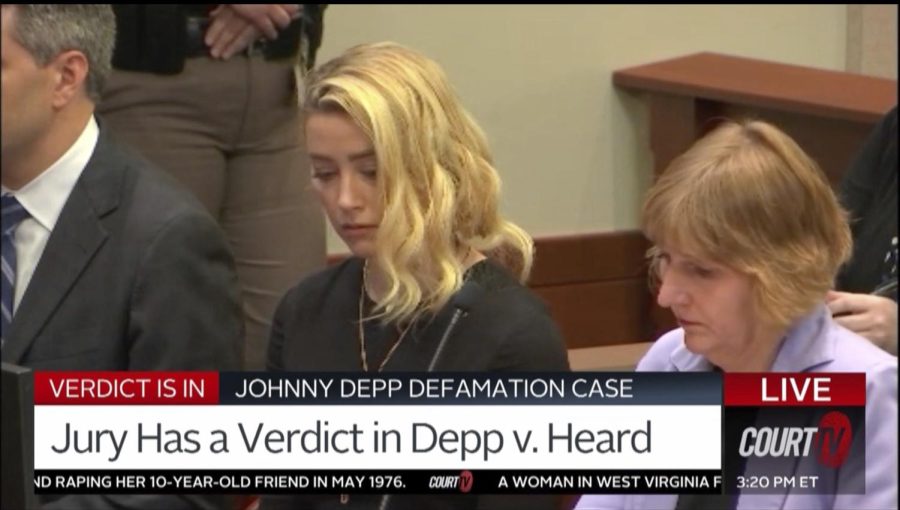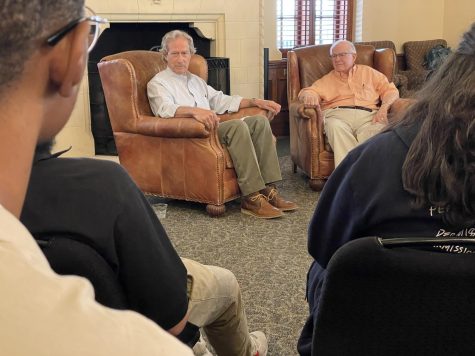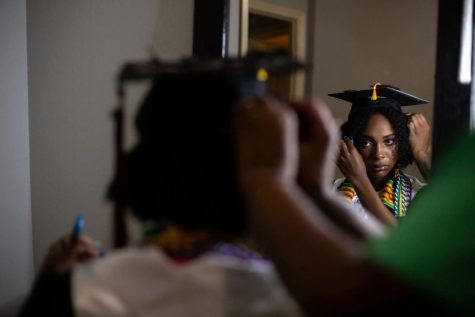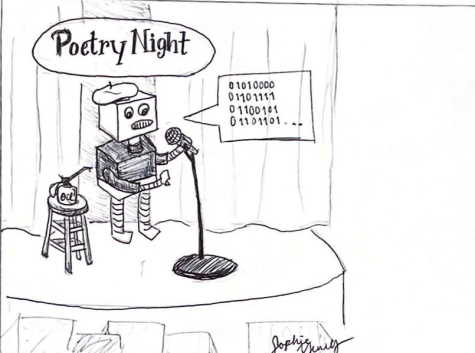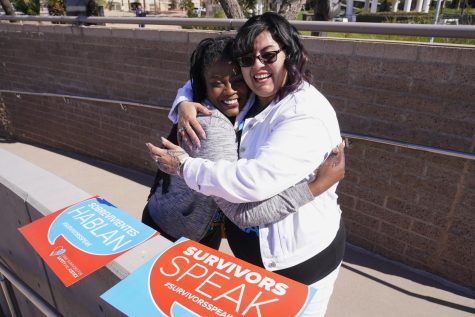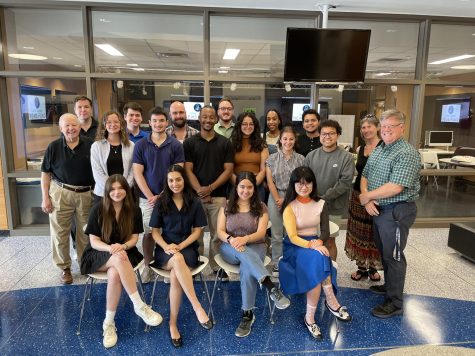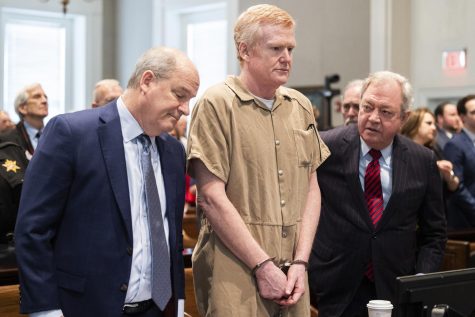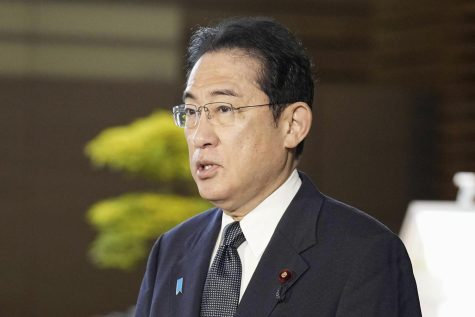Depp awarded $10M, Heard $2M in split libel lawsuit verdict
Jury finds both Amber Heard and Johnny Depp defamed
Amber Heard reacts as the jury’s verdict is read in the courtroom in the Fairfax County Circuit Courthouse in Fairfax, Va. on June 1, 2022. Depp was not present for the verdict.
FAIRFAX, Va. — A jury awarded actor Johnny Depp more than $10 million Wednesday in his libel lawsuit against ex-wife Amber Heard, vindicating his stance that Heard fabricated claims that she was abused by Depp before and during their brief marriage.
The jury also found Heard was defamed by a lawyer for Depp who accused her of creating a detailed hoax, including roughing up their apartment to look worse for police. The jury awarded her $2 million in damages.
The verdicts bring an end to a televised trial that Depp had hoped would help restore his reputation, though it turned into a spectacle of a vicious marriage. Throughout the trial, fans — overwhelmingly on Depp’s side — lined up overnight for coveted courtroom seats. Spectators who couldn’t get in gathered on the street to cheer Depp and jeer Heard whenever they appeared outside.
Heard, who was stoic in the courtroom as the verdict was read, said she was heartbroken.
Depp, who was not inside the courtroom Wednesday, sued Heard for libel in Fairfax County Circuit Court over a December 2018 op-ed she wrote in The Washington Post describing herself as “a public figure representing domestic abuse.” His lawyers said he was defamed by the article even though it never mentioned his name.
The jury found in Depp’s favor on all three of his claims relating to specific statements in the 2018 piece. In evaluating Heard’s counterclaims, jurors considered three statements in which a lawyer for Depp called her allegations a hoax. They found she was defamed by one of them, in which the lawyer claimed that she and friends “spilled a little wine and roughed the place up, got their stories straight,” and called police.
The jury found Depp should receive $10 million in compensatory damages and $5 million in punitive damages, but the judge said state law caps punitive damages at $350,000, meaning Depp was awarded $10.35 million.
While the case was ostensibly about libel, most of the testimony focused on whether Heard had been physically and sexually abused, as she claimed. Heard enumerated more than a dozen alleged assaults, including a fight in Australia — where Depp was shooting a “Pirates of the Caribbean” sequel — in which Depp lost the tip of his middle finger and Heard said she was sexually assaulted with a liquor bottle.
Depp said he never hit Heard and that she was the abuser, though Heard’s attorneys highlighted years-old text messages Depp sent apologizing to Heard for his behavior as well as profane texts he sent to a friend in which Depp said he wanted to kill Heard and defile her dead body.
In some ways, the trial was a replay of a lawsuit Depp filed in the United Kingdom against a British tabloid after he was described as a “wife beater.” The judge in that case ruled in the newspaper’s favor after finding that Heard was telling the truth in her descriptions of abuse.
In the Virginia case, Depp had to prove not only that he never assaulted Heard, but that Heard’s article — which focused primarily on public policy related to domestic violence — defamed him. He also had to prove that Heard wrote the article with actual malice. And to claim damages he had to prove that her article caused the damage to his reputation as opposed to any number of articles before and after Heard’s piece that detailed the allegations against him.
Depp, in his final testimony to the jury, said the trial gave him a chance to clear his name in a way that the the U.K trial never allowed.
“No matter what happens, I did get here and I did tell the truth and I have spoken up for what I’ve been carrying on my back, reluctantly, for six years,” Depp said.
Heard, on the other hand, said the trial has been an ordeal inflicted by an orchestrated smear campaign led by Depp.
“Johnny promised me — promised me — that he’d ruin my life, that he’d ruin my career. He’d take my life from me,” Heard said in her final testimony.
The case captivated millions through its gavel-to-gavel television coverage and impassioned followers on social media who dissected everything from the actors’ mannerisms to the possible symbolism of what they were wearing. Both performers emerge from the trial with reputations in tatters with unclear prospects for their careers.
Eric Rose, a crisis management and communications expert in Los Angeles, called the trial a “classic murder-suicide.”
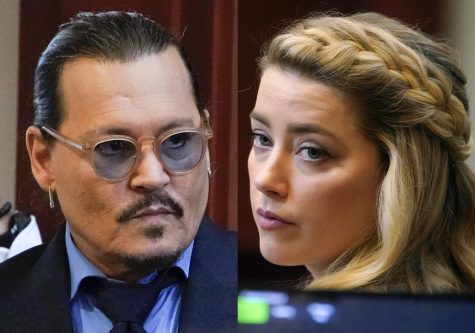
“From a reputation management perspective, there can be no winners,” he said. “They’ve bloodied each other up. It becomes more difficult now for studios to hire either actor because you’re potentially alienating a large segment of your audience who may not like the fact that you have retained either Johnny or Amber for a specific project because feelings are so strong now.”
Depp, a three-time best actor Oscar nominee, had until recent years been a bankable star. His turn as Capt. Jack Sparrow in the “Pirates of the Caribbean” film helped turn it into a global franchise, but he’s lost that role. (Heard and Depp’s teams each blame the other.) He was also replaced as the title character in the third “Fantastic Beasts” spin-off film, “The Crimes of Grindelwald.”
Despite testimony at the trial that Depp could be violent, abusive and out of control, he received a standing ovation Tuesday night in London after performing for about 40 minutes with Jeff Beck at the Royal Albert Hall. He has previously toured with Joe Perry and Alice Cooper as the group Hollywood Vampires.
Heard’s acting career has been more modest, and her only two upcoming roles are in a small film and the upcoming “Aquaman” sequel due out next year.
Depp’s lawyers fought to keep the case in Virginia, in part because state law provided some legal advantages compared with California, where the two reside. A judge ruled that Virginia was an acceptable forum for the case because The Washington Post’s printing presses and online servers are in the county.


